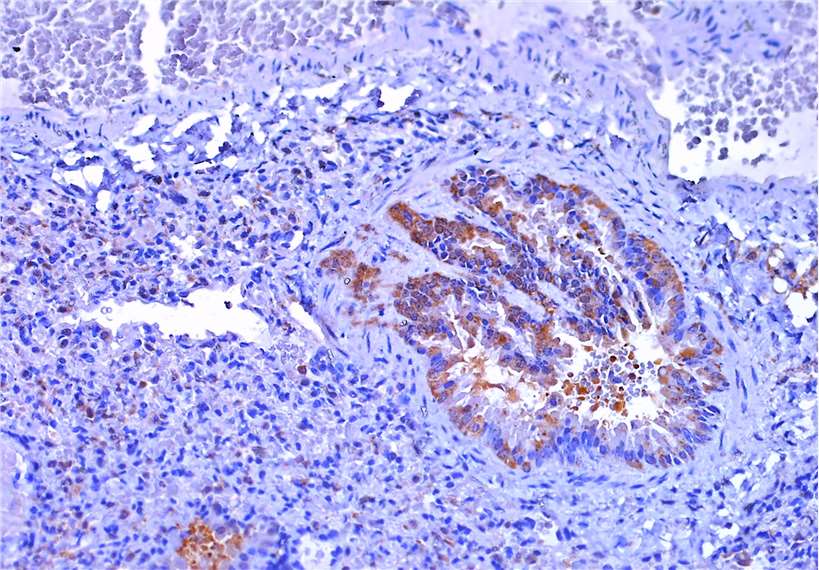Technically, IHC is a relatively simple and straightforward experimental method. However, there are many variables which must be identified and optimized for each individual IHC study. Optimization of IHC may also require troubleshooting a variety of factors. Here, we highlight common IHC problems and provide appropriate experimental actions.

Weak or No Staining
Protein not present in tissue sample: Confirm the expression of your protein of interest by in situ hybridization. Use a tissue type known to express your antigen of interest as a positive control.
Formalin fixation has caused epitope masking: Decrease the fixation time. Use different antigen retrieval methods to unmask epitope (heat-induced epitope retrieval vs. protease-induced epitope retrieval)
Insufficient deparaffinization: Increase the deparaffinization time. Use fresh xylene or dewaxing solution.
Primary antibody is not validated for IHC application: Check that primary antibody has been validated for the chosen sample type (paraffin sections vs. frozen samples) and species. Perform western blot using native and denatured forms of the target protein to confirm that the antibody recognizes the native protein.
Antibody do not work due to improper storage and handling: Store as recommended by the manufacturer. Aliquot antibodies into smaller volumes to minimize repeated freeze-thaw cycles.
Antibody concentration is inadequate: Increase the concentration or run a serial dilution test to determine the optimal dilution. Increase the duration of antibody incubation step.
Antibody is failing to reach intracellular targets: Add a permeabilizing agent like Triton X to the blocking buffer and antibody dilution buffer.
Primary and secondary antibodies are incompatible: Use a secondary antibody that is raised against the species in which the primary is raised. (e.g., if the primary antibody is raised in rabbit, use anti-rabbit secondary antibody).
PBS buffer is contaminated with bacteria that damage the phosphate groups on the protein of interest: Add 0.01% azide in the PBS antibody storage buffer or use fresh sterile PBS.
High Background
Endogenous peroxidase or phosphatase has not been inactivated: Block endogenous enzyme activity using 3% H2O2 in methanol (peroxidase) or 1mM levamisole solution (phosphatase) prior to incubation with primary antibody.
The primary antibody host species is the same species as the tissue samples: Select a primary antibody raised in a host other than the species of the tissues you wish to analyze by IHC. Consider direct detection or try using a biotinylated primary antibody with a conjugated streptavidin detection reagent.
Antibody concentration is too high: Titrate primary and secondary antibodies to determine optimal concentrations. Reduce the duration of the primary antibody incubation step.
Secondary antibody cross-reactivity or nonspecific binding: Use secondary antibody that has been cross-adsorbed against the host species of the sample. Run secondary antibody-only controls. Change your secondary antibody to make sure the one you use has been raised in a different species to your sample.
Overstaining due to over amplification: Reduce amplification incubation time and dilute the secondary antibody or amplification kit.
Incubation temperature may be too high: Incubate sections at 4℃.
Washing is inadequate: Increase the number, volume, and/or duration of wash steps.
Tissues sections have dried out: Keep the sections wet at all times during the IHC protocol.
Too much substrate is applied: Dilute the substrate more and reduce substrate incubation time.